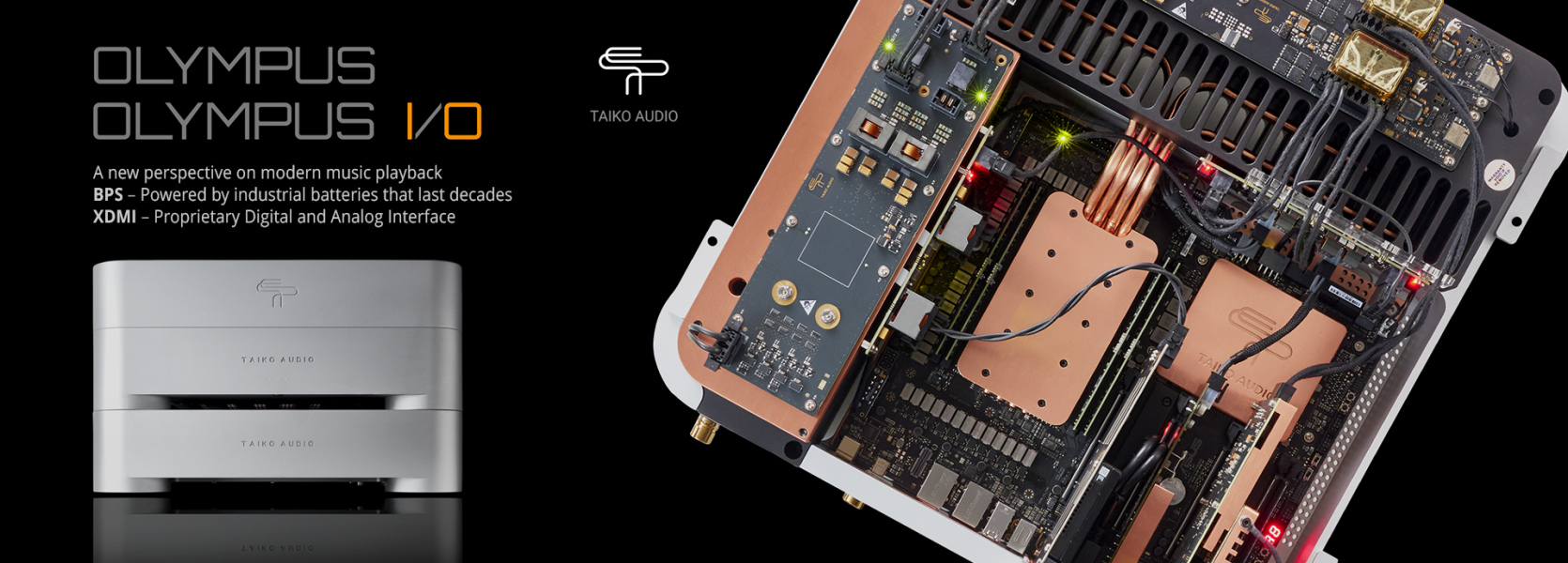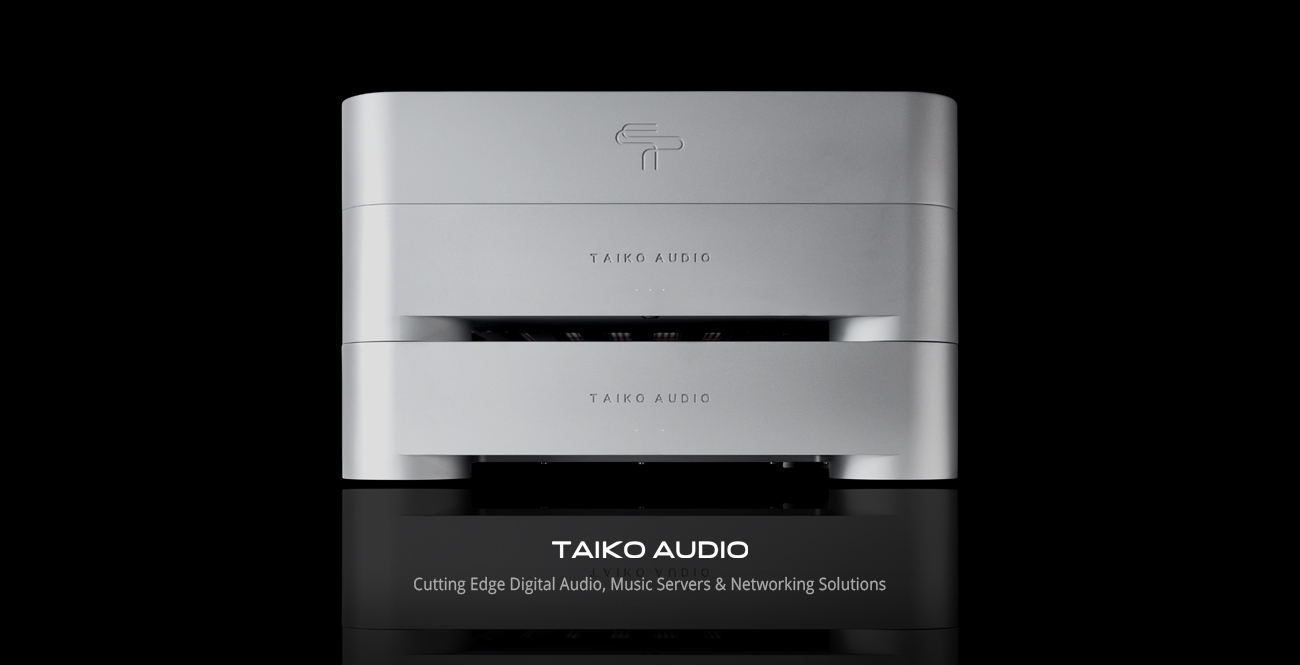I have been super busy and the Olympus XDMI is still burning in. There are a lot of tests I would like to perform but really need the burn-in to settle first, so that I am not testing against a moving target.
Olympus XDMI Analog:
Pretty sure some people are eager to hear my initial impressions, so although a bit early, I will share what I have so far. Here are some of my notes about listening to XDMI analog (only streaming Qobuz with the router/switch/DCD):
- Presentation is different than what I am used to. It’s really hard to describe what I mean by “different” and I don’t think I have a full grasp on that yet.
- 3D and holographic - the best I have heard.
- Sound stage is big - wide and deep.
- Bass is amazing. Some of the best bass I have heard was coming from really good reel to reel decks playing master tapes (or copies of). The bass from the Olympus XDMI really reminds me of that and it’s the closest I have heard to that. But it’s different. The bass from these analog tapes was more rounded and softer and did not go very low. The bass from the Olympus XDMI is not rounded or soft in any way. And goes low and deep. It kind of has the best of both worlds IMHO.
- Not so well recordings sound amazing. This is my absolute favorite part about the Olympus XDMI. I just kept listening to music I did not really enjoy on my big system before. I found myself playing full albums of music I never enjoyed in my system before. In fact I realized I never got to playing any of my well recorded reference tracks last night. ****There might be a small caveat to this, though - we audiophiles sometimes like changes to the presentation and we rediscover a lot of old albums but that kind of quickly fades away over time when the initial excitement is over. I don’t think that is the case here but won’t be able to confirm until I spend more time with the Olympus. But it really extracts a lot more musical information from these not so good recordings.
- The Olympus XDMI really excels in playing complex music with a lot of instruments. Instead of doing a confused mess, it clearly shows where every instrument is, you hear layers and layers, and even the vibrations of each instrument. It’s quite cool. Give it some complex music and watch what it can do. The more complex it is, the better.
- There is no such thing as digital harshness with the Olympus XDMI. It has all the good properties of good digital (such as clarity, detail, dynamics, fast transients, etc.) without the bad stuff.
- Last but not least, music is very immersive, involving, engaging, and fluid. This is where I think the comparison with analog comes from. If you think about it having that great bass as the foundation, the absolute best 3D and holographic sound with big-deep-wide soundstage that can render effortlessly complex music and reproduce layers and vibrations - it will be immersive and engaging
 .
.
There are many questions that still need answering, though. And I need more time to answer them. The problem is that my analytical brain turns off and I enjoy the music withouth thinking too much into what I am hearing. I need to find a way to turn my analytical brain back on.
On the negative side… mostly due to burn in:
- The Olympus is still burning-in. I can hear that. There are ups and downs. There were times when I said “WOW”, times when I jumped out of my seat, and times when I was underwhelmed. So there is more to come.
- In fact the first three hours were quite underwhelming. I think it took 3.5 hours before the first “WOW”.
- At times I was wondering if I needed to re-tune my system with different cables, preamp, etc. But this might have been burn-in side effects, because shortly after I did not feel like I needed to do anything.
- Although not exactly a negative, I will add this here - I found myself listening louder and louder and louder and louder … to levels I should not be listening to. It was just fun to listen loud with no distortions but dangerous for my hearing. Be careful with that.
What about the USB output?
I sold my Extreme, and I couldn’t do a side by side comparison. However, from recollection I feel like the Olympus USB is a lot better than what I was hearing from my Extreme.
A couple of friends offered to bring their Extreme, so we can do proper A/B comparison and I may take them up on that offer. My memory is usually not bad, and I feel like the USB on the Olympus is a lot better.
What is also interesting is that some of that "different" sound presentation I mentioned earlier about XDMI analog is there with USB. That makes me think that not all of that is XDMI... perhaps the BPS and other parts of the Olympus design has something to do with it.
XDMI Analog vs. USB to "my DAC"?
Here is the million (or $50K-ish, 100K-ish, depending on what DAC you have) dollar question - how does the Olympus XDMI analog compare to the Olympus USB to my DAC? Well, that was an easy one. After listening to XDMI analog, I simply cannot go back to USB + my DAC. I tried a couple of times and you really only need a few seconds to realize that. I will keep that answer short as it’s probably the easiest thing to answer.
What is "my DAC"?
“My DAC” is not a commercial DAC but a tube DAC that I built and tweaked over the years myself.
BTW, As someone who likes tubes, I think the Olympus XDMI analog will work great with a very good tube preamp (at least in my system). I have several here to experiment with when I have more time. For these listening tests I was using a passive silver wire autoformer based device similar to the EM/IA Remote Autoformer ones.
XDMI Analog vs. USB to "your DAC"?
I can’t really answer how it would compare to “your DAC”. But what I am hearing is exceptionally good, and I would not be surprised at all if you feel the same way with “your DAC” after listening to XDMI analog. In fact I believe XDMI Analog will outperform many high end DACs.
I will be very curious to follow the feedback about XDMI analog vs. native XDMI in the Lampizator Horizon.
BPS and AC mains?
As expected my system became less dependent on the quality of my mains (AC power) with the battery powered Olympus. I had a pretty significant difference between playing during business hours on weekdays and say around midnight. That itself and the fact that I can enjoy many not very well recorded albums is a big enough reason for me to do this upgrade.
Summary:
I think it's obvious that I liked the Olympus XDMI quite a bit and there is a lot more room for improvement and fine tuning. I've been a speakers-first person, but I really appreciate the source first approach now too. You may be surprised what your system is capable of when you have a source as musical as the Olympus XDMI.
For those who are still on the fence whether to place an order or not before the 5K Euro XDMI promo ends next week, it's quite simple - if you can afford it, go for it. For the rest - if you can trade-in your Extreme, sell your DAC, a power cord, a USB cable, etc. - well you do the math... I know a lot of people who will end up with a net positive $$$ and will have much better sound.
If you are not sure whether it's for you or not, feel free to reach out, and I will be happy to help.
Disclaimers:
After seeing a bunch of thumb-downs on my YouTube shorts (sorry for those who were disappointed - I am not a YouTuber and just wanted to share the moment with those who are eagerly expecting their Olympus), I realized that these posts are being read not only by my friends who I keep in touch with but also by all kinds of people, with different agendas. So, some disclaimers below:
- The above is my subjective experience and thoughts. YMMV.
- As many of you already know, I am a Taiko dealer, so feel free to take my honest comments with a grain of salt.



